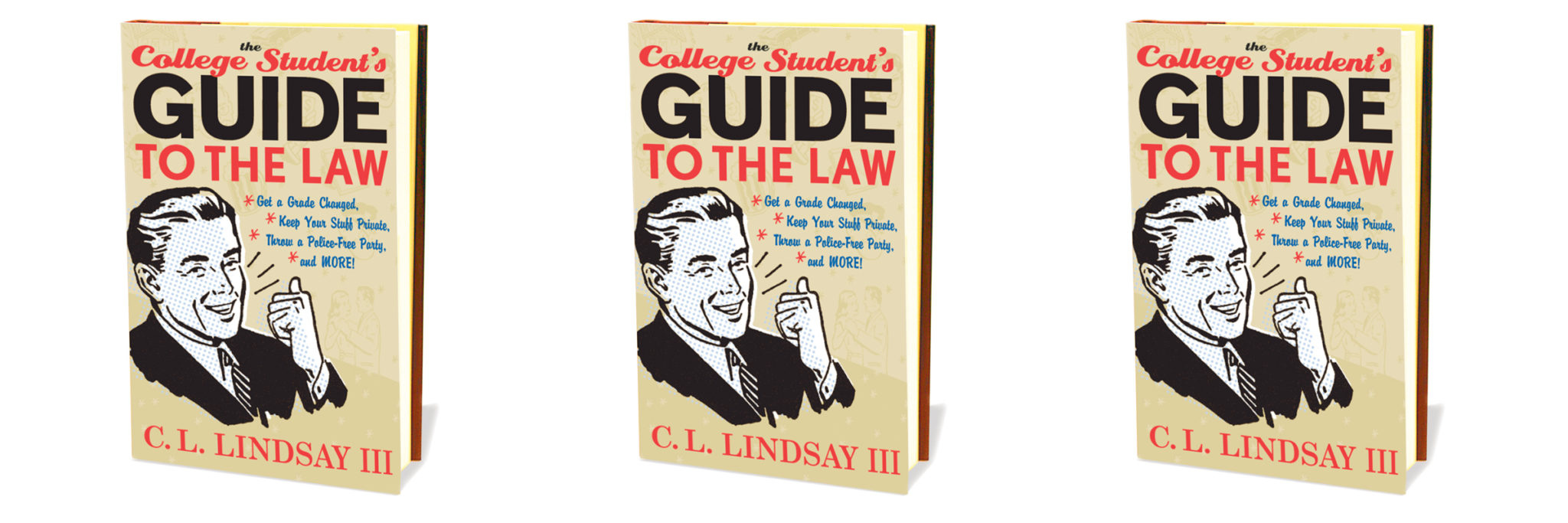At first glance, C.L. Lindsay’s book, the college Student’s Guide to the Law, seems like a sort of Anarchists Cookbook for campus knuckleheads—a step-by-step guide for any underage drinker, stoner, or plagiarist who wants to break the law on campus and get away scot-free. One chapter discusses how to throw a kegger that won’t get shut down. (Tip: create a “façade” of legality by posting a friend at the door who will pretend to check partygoers’ IDs.) Another offers advice on what to do if you’re accused of cheating (your first reaction, writes Lindsay ’93, should be to “delay” and stop yourself from “opening up your pie-hole”). A section on landlord disputes is partially subtitled “Step Off, Biyatch: Getting Your Landlord to Respect Your Privacy.”
But hold on. Privacy. Now here’s an interesting, loaded word. The right to be left alone is a fundamental American value, but it’s not in the Constitution—which means that courts tend to balance privacy rights against other rights, and sometimes privacy wins (Roe v. Wade), and sometimes it loses (The Patriot Act; your nosy land-lord), and it’s even possible to give your privacy rights away by, say, letting your buddy post on Facebook a picture of your Jägermeister exploits at his weekend bash. It’s possible to draw a straight line from that Facebook pic to the weightiest debates about human freedom and American ideals. “I know I can get a student to care about whether he gets busted on Facebook or whether the police are going to bust his party,” Lindsay says. “I don’t know if I can teach a student about protests. So this gets the foot in the door.”
Lindsay lectures on law and literature in the University of Pennsylvania’s English department and runs a non-profit organization he co-founded, CO-STAR, which doles out free legal advice to college students across the country. U.S. News & World Report dubbed Lindsay “the Keg Lawyer.” But his book belies the monicker. Beneath the frat-boy vernacular, and beyond the lighter material about campus myths—sorry, but sorority houses are not considered “brothels” by any known zoning codes—lurks the most accessible book ever written about constitutional law. Lindsay begins with a 17-page user’s guide to the Constitution in which he breaks down the Bill of Rights, clause by clause and shows how each one applies to life today. “There’s not a lot of duds in there,” Lindsay laughs.
(On second thought, he says, “Maybe the Second isn’t so good anymore.”) He goes on to trace the evolution of university policy, showing how the bad old days of restrictive in loco parentis rules and curfews gave way to the free-love, hands-off sixties, when students could blow reefer smoke into the dean’s face with impunity.
Today, of course, schools are freaked out by lawsuits alleging negligence, so they’re cracking down anew, trying to minimize legal liability—which only deepens the rationale for Lindsay’s book. It’s not only the schools that have responsibilities. Students do, too. But students can’t live up to them if they don’t know their contours. “When you teach consequence, you teach responsibility,” Lindsay says. “This is the same stuff you’re going to have to know the rest of your life.”

